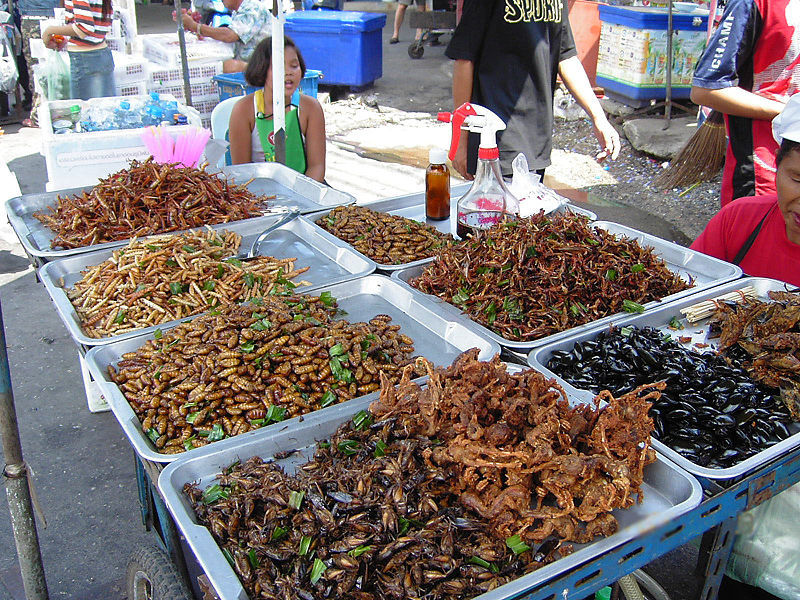Edible Bugs to Help Fight World Hunger

How to solve world hunger? The United Nations thinks bugs might help.
Meat-eating is an inefficient way to get calories, because livestock such as cows and sheep must ingest around 10 times more vegetable matter, in terms of calorie count, than they convert into meat. En route to a steak, a huge number of food calories are wasted.
And yet, humans need protein. Fortunately, insects are full of it.
There are at least 1,700 edible insect species around the world, from beetles to locusts to grubs. The UN's Food and Agriculture Organization (FAO), in conjunction with Wageningen University in the Netherlands, has begun a research project to determine the potential of these insects to supplement the food supply in Europe and other places. At a conference in late January in Rome, scientists began work on a plan to exploit insects as alternative sources of protein, and incorporate them into livestock feed and food products. [Eat the Old: Could Mass Cannibalism Solve a Future Food Shortage? ]
Eating bugs is common practice in much of the world. According to the FAO, the practice has come to be regarded with disgust in Western cultures simply because cold climate countries have fewer edible insect species, and smaller swarms to utilize, and these countries have therefore not integrated bug-eating into their cultures.
This has led to insects' under-utilization worldwide. "The western attitude that eating insects is primitive or a barbarity has not encouraged developing countries to place it high on the agenda of development assistance," the FAO states on its website. "Consequently western donors neglect insects as a possible food source. In fact through urbanization in developing countries, western lifestyles are often copied, discouraging the practice."
The FAO is trying to reverse the trend. Its technical position paper, which will lay out its plan regarding the introduction of edible insects into the food supply, is expected to become available by mid-2012.
Sign up for the Live Science daily newsletter now
Get the world’s most fascinating discoveries delivered straight to your inbox.










